In CGS system the magnitude of the force is 100 dynes. In another system where the fundamental phyical quamtities are kilogram , meter , and minute, find the magnitude of the force.
0.036
0.36
3.6
36
The correct Answer is:C
Step by step video & image solution for In CGS system the magnitude of the force is 100 dynes. In another system where the fundamental phyical quamtities are kilogram , meter , and minute, find the magnitude of the force. by Physics experts to help you in doubts & scoring excellent marks in Class 12 exams.
Updated on:21/07/2023Topper's Solved these Questions
- UNITS AND MEASUREMENTSBOOK - AAKASH SERIESCHAPTER - UNITS AND MEASUREMENTSEXERCISE - EXERCISE -2
56 Videos
- UNITS AND MEASUREMENTBOOK - AAKASH SERIESCHAPTER - UNITS AND MEASUREMENTEXERCISE - PRACTICE EXERCISE
45 Videos
- WAVE MOTIONBOOK - AAKASH SERIESCHAPTER - WAVE MOTIONEXERCISE - PRACTICE SHEET ADVANCED (INTEGER TYPE QUESTIONS)
10 Videos
Similar Questions
Find the magnitude of the resultant of shown forces :-
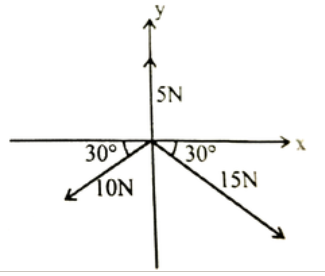
View Solutionfind the magnitude of dipole moment of the the following system

View SolutionFind the magnitudes of the unknown forces if the sum of all forces is zero (figure)
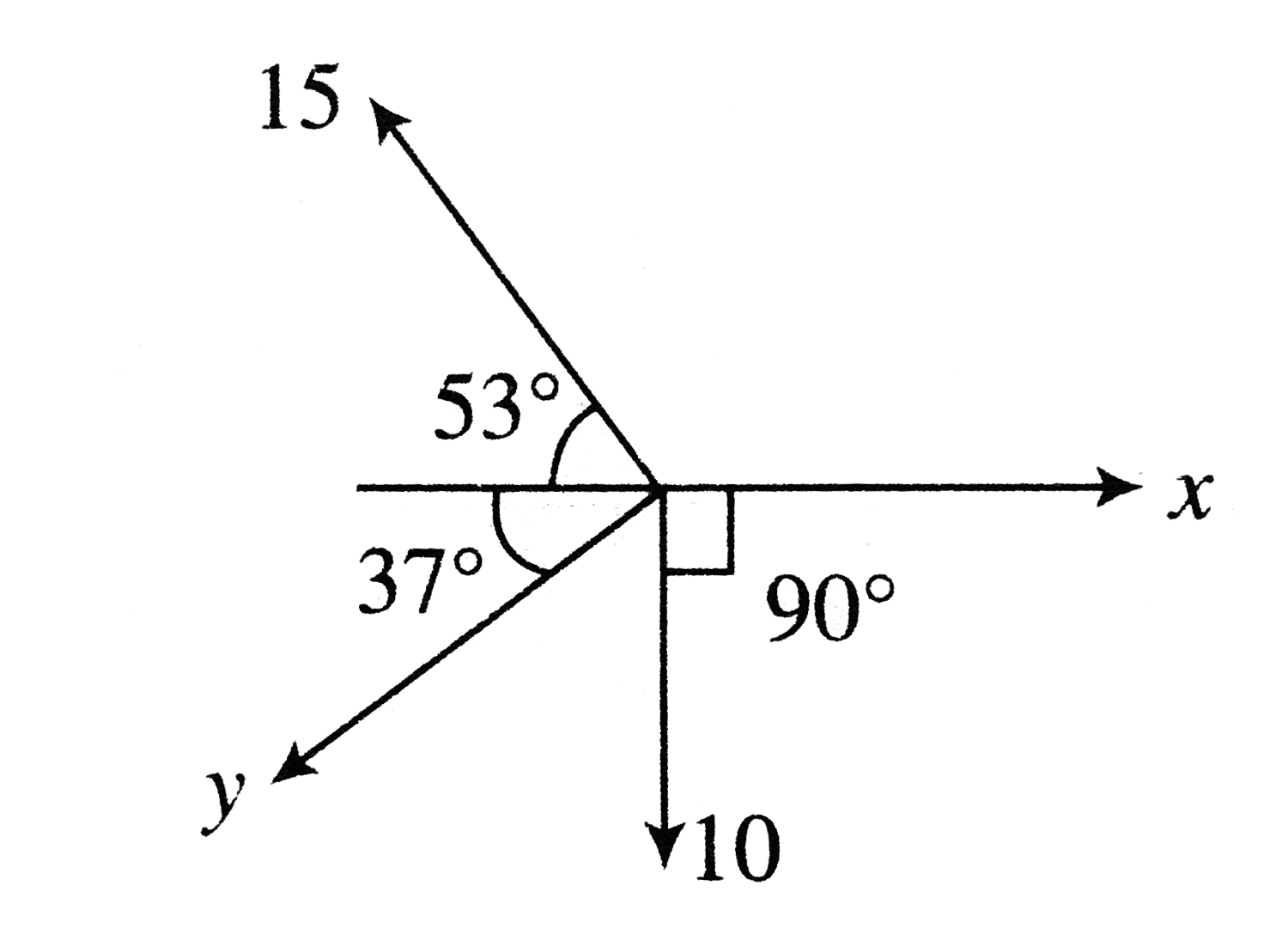
View SolutionFind the magnitude of the unknown forces X and Y if sum of all forces is zero.
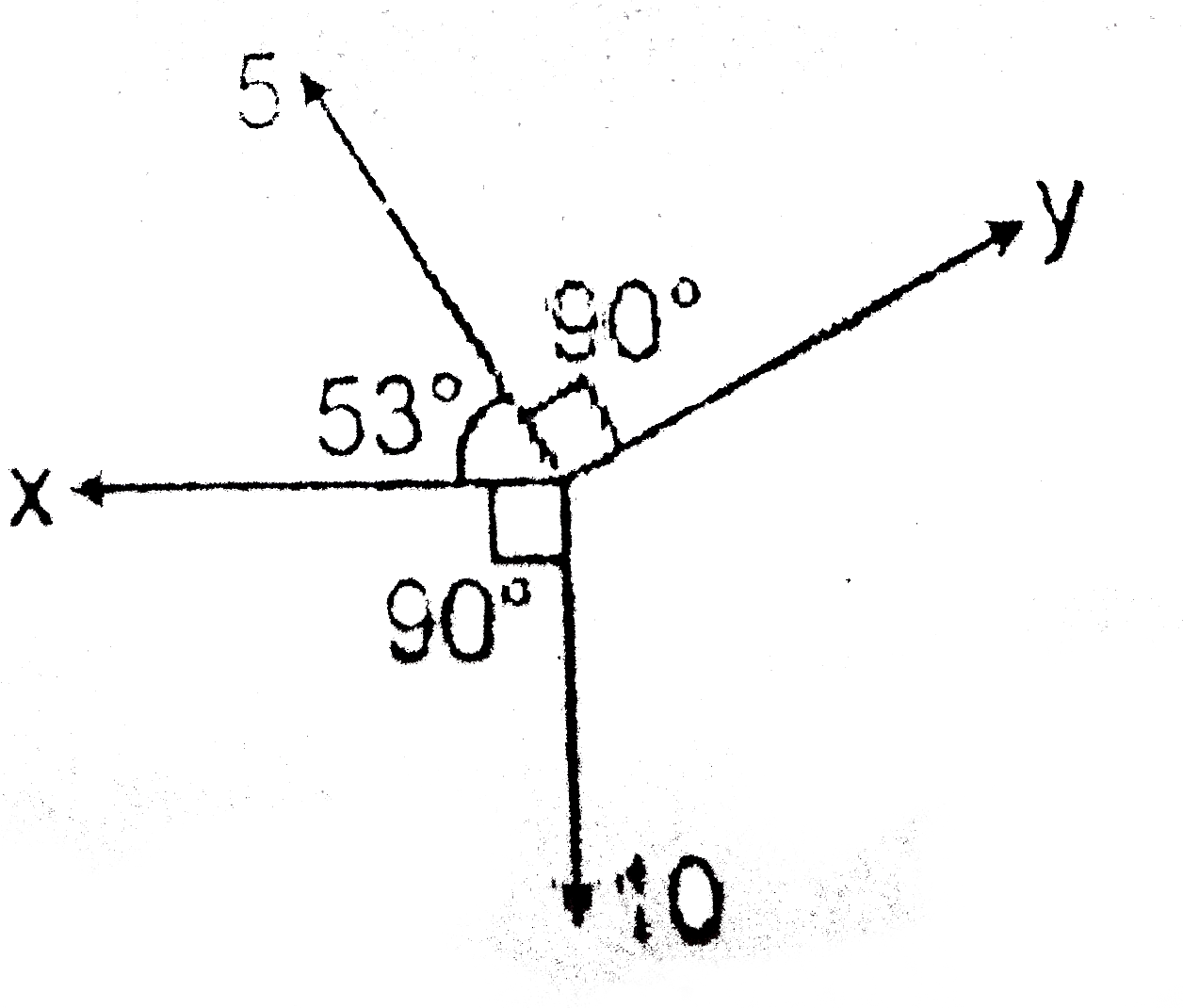
View SolutionFind the magnitude of dipole moment of the following system.
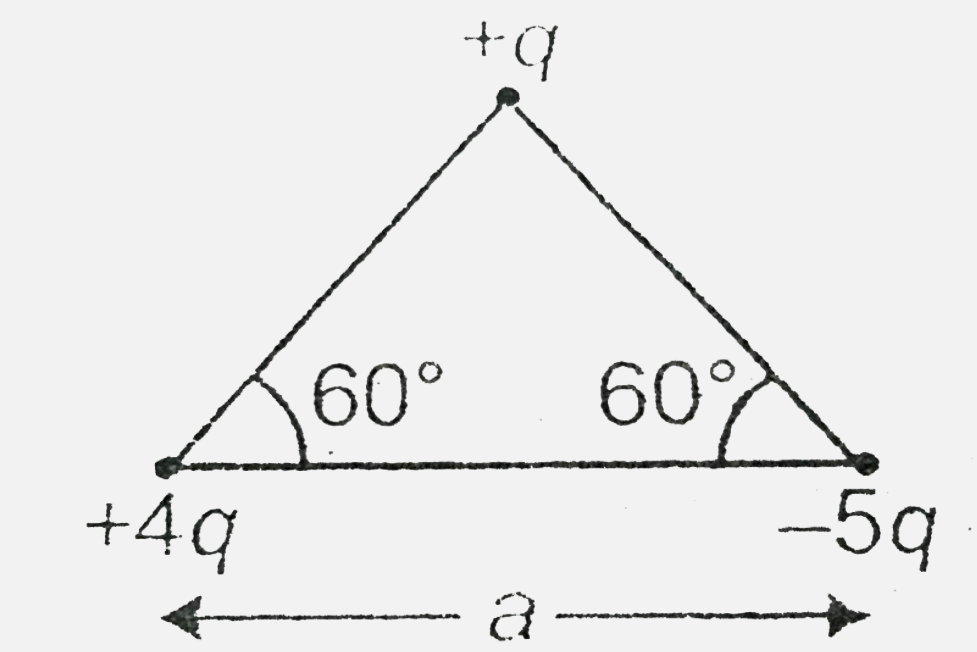
View SolutionSum of magnitude of two forces is 20 N and magnitude of their resultant is 10 N. If resultant is perpendicular to the smaller force find values of both forces.
View SolutionTwo forces whose magnitudes are in the ratio 3:5 give a resultant of 28N. If the angle of their inclination is 60∘, find the magnitude of each force.
View SolutionTwo forces whose magnitudes are in the ratio 3:5 give a resultant of 28N. If the angle of their inclination is 60∘, find the magnitude of each force.
View SolutionFour forces of magnitude P, 2P, 3P and 4P act along the four sides of a square ABCD in cyclic order. Use the vector method to find the magnitude of resultant force.
View SolutionTwo horizontal forces of magnitudes of 10N and PN act on a particle. The force of magnitude 10N acts due west and the force of magnitude PN acts on a bearing of 30∘ east of north as shown in (figure) The resultant of these two force acts due north. Find the magnitude of the resultant.
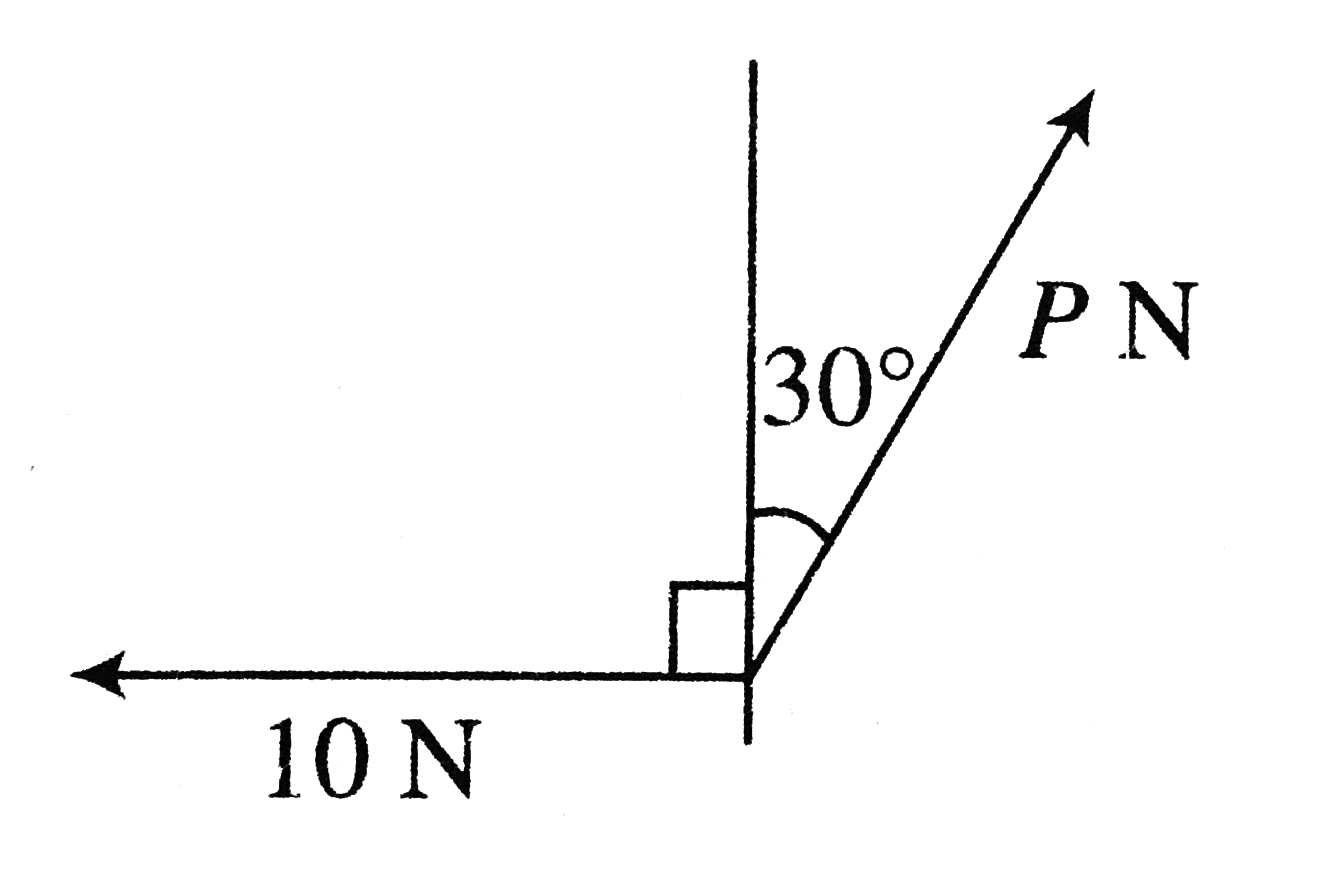
View Solution
